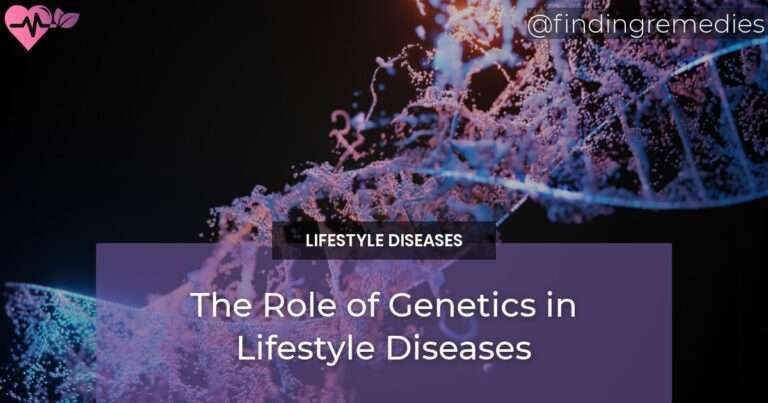Are you aware of the role of genetics in lifestyle diseases? It’s an important topic to understand, as lifestyle diseases such as heart disease, stroke, and diabetes are on the rise. Genetics play a significant part in whether or not you develop these diseases throughout your life.
In this article, I’ll discuss what you need to know about the role of genetics in lifestyle diseases. We’ll look at how our genetic makeup can influence our risk for developing certain conditions and how we can take control of our health by making changes to reduce that risk. With a better understanding of the genetic links to lifestyle diseases, we can make informed decisions about our health that may help us live healthier and longer lives.
Table of Contents
Genetics and Lifestyle Diseases
Many chronic diseases, such as diabetes, heart disease, and cancer, are referred to as “lifestyle diseases” because they are often caused or exacerbated by unhealthy lifestyle choices. However, the role that genetics plays in the development of these diseases cannot be ignored. In this article, we will explore how genetics affect lifestyle diseases, how to understand your risk, and steps to take control of your health.
What are Lifestyle Diseases?
Lifestyle diseases are chronic illnesses that are often caused by lifestyle factors such as poor nutrition, lack of physical activity, and smoking. These diseases include:
- – Type 2 diabetes
- – Heart disease
- – Stroke
- – High blood pressure
- – Certain types of cancer
- – Chronic obstructive pulmonary disease (COPD)
- – Obesity
Lifestyle diseases are preventable and can be managed through lifestyle changes and medication.
How Genetics Affect Lifestyle Diseases
While lifestyle factors play a significant role in the development of lifestyle diseases, genetics also have an impact. Some chronic diseases are hereditary, meaning they are passed down from generation to generation. Genetic variations can also affect how our bodies process certain nutrients, making some people more susceptible to developing certain diseases.
Understanding Your Risk
Genetic Testing and Lifestyle Diseases
Genetic testing can help you understand your risk for certain hereditary diseases. For example, if you have a family history of breast cancer, genetic testing can determine if you have inherited a genetic mutation that increases your risk of developing the disease. Genetic testing can also determine if you have a higher risk for certain chronic diseases based on your genetic makeup.
Family Health History and Lifestyle Diseases
Another way to understand your risk for lifestyle diseases is to know your family health history. By understanding the health conditions that run in your family, you can take steps to prevent or manage these diseases. For example, if your family has a history of heart disease, you can make lifestyle changes, such as eating a heart-healthy diet, getting regular exercise, and managing stress to reduce your risk of developing the disease.
Epigenetics and Lifestyle Diseases
Epigenetics is the study of how lifestyle factors, such as diet and stress, can affect the expression of our genes. Epigenetic changes can increase the risk of developing certain chronic diseases. For example, if you experience chronic stress, it can lead to epigenetic changes that increase your risk of developing heart disease.
Taking Control: Prevention and Management
Lifestyle Changes and Prevention
Preventative measures are the best way to reduce the risk of lifestyle diseases. By making lifestyle changes such as eating a healthy diet, getting regular exercise, quitting smoking, and managing stress, you can reduce the risk of developing chronic diseases. Personalized nutrition and exercise plans based on your genetic makeup can also help to prevent chronic illnesses.
Medication and Lifestyle Diseases
In some cases, medication is necessary to manage lifestyle diseases. For example, medication can help to control blood sugar levels in people with type 2 diabetes. It is important to work with your healthcare provider to determine the best course of treatment for your specific needs.
Genetic Counseling and Lifestyle Diseases
Genetic counseling can help you to understand your risk for hereditary diseases and provide information on how to manage your health. In addition, genetic counseling can help you to make informed decisions about genetic testing.
In conclusion, While lifestyle factors play a significant role in the development of lifestyle diseases, genetics cannot be ignored. Understanding your risk for lifestyle diseases can help you to take proactive steps to prevent and manage chronic illnesses. Through genetic testing, family health history, and epigenetics, you can gain a deeper understanding of your health risks. With lifestyle changes, medication, and genetic counseling, you can take control of your health and lead a healthier life.

